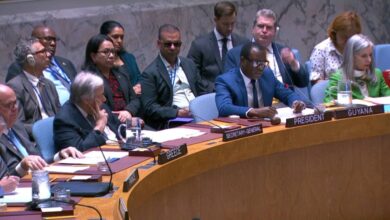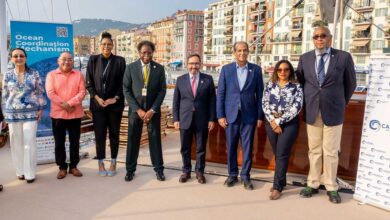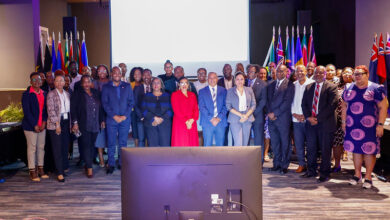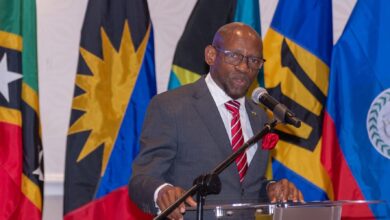The Community recognises that the challenges of development are deep-seated. Significant resources and appropriate and mutually reinforcing policies at national, regional and international levels are required to address the difficulties facing developing countries. CARICOM Member States, therefore, continue to maintain their commitment to regional integration as the platform for securing inclusive sustainable growth.
In this regard, the Caribbean Community endorses the goal of achieving “sustainable development in its three dimensions through promoting inclusive growth, protecting the environment, and promoting social inclusion,” as stated in the Action Agenda.
The Caribbean Community wishes to emphasise that small size, coupled with inherent vulnerabilities and susceptibility to exogenous shocks, and a lack of resilience, create conditions deserving of special consideration for SIDs as they seek to mobilise resources for development.
Domestic and regional resource mobilisation is necessary but not sufficient to meet the financing needs for our sustainable development. An inflow of external financial resources will continue to be critical. However, CARICOM States have been graduated out of concessionary development financing due to their classification as middle income countries, based on the criterion of GDP per capita. With such limited access, they are forced to source funds at higher rates and with shorter repayment terms, thereby contributing to their debt burden and further shrinking the fiscal space.
The particular challenges of CARICOM Member States have been recognised. The International Monetary Fund has concluded that they “exhibit extreme versions of long-term low growth, high debt, significant vulnerabilities and limited resilience to shocks which set them apart from other middle income states”. However, with the exception of Haiti, all CARICOM Member States have been graduated from full access to multilateral concessional financing and major development partners have adopted a similar stance.
The Community wishes to reiterate that continued access to multilateral and bilateral concessional financing, notwithstanding its members’ classification as middle income states, is critical to our sustainable development agenda. The criteria for concessional financing must not be based solely on GDP per capita, and must be changed to include the economic and environmental vulnerability of SIDS.
The Caribbean Community therefore welcomes the position laid out in the Action Agenda on this critical issue, and looks forward to the requisite changes in the policies governing access to international public finance. We also welcome the work being done by the UNDP to review the eligibility criteria for the access by SIDS to concessional financing.
Mr President, a serious challenge for CARICOM States is their high levels of indebtedness and extremely burdensome debt servicing. It must be noted that a significant portion of the debt is due to exogenous shocks and from the reconstruction after natural disasters. According to the United Nations Economic Commission for Latin America and the Caribbean (UNECLAC), the economic cost of natural disasters in the Caribbean between 2000 and 2014 is estimated at US$30 billion. The World Bank estimates that the average annual natural disaster losses in the Caribbean is US$850 million, while in the Pacific the average is US$200 million per year. This underscores the fact that the Caribbean is one of the most natural disaster prone regions in the world.
It is not surprising that five (5) of our Member States are among the most highly indebted countries in the world, while ten (10) are considered as having unsustainable levels of indebtedness, with debt to GDP ratios ranging from 65-140%. Addressing this situation in a constructive and sustainable manner will allow our Region to build the resilience required to safeguard and consolidate their development gains.
The Community, therefore, welcomes proposals by UNECLAC which seek to ease the debt burden on CARICOM Member States. The conversion of multilateral and bilateral debt into special funds to address external economic shocks, natural disasters, and education, is one that is worthy of consideration by the international community and development partners. The objective is to create much needed fiscal space and assist in facilitating inclusive economic growth.
SIDS debt and the criteria for access to concessional financing need urgent attention within a strengthened FfD framework in order to achieve the 17 Sustainable Development Goals (SDGs) under the Post-2015 Development Agenda.
I call for strong collaborative action among the development partners such as the UN and its agencies, the International Financial Institutions, the OECD, and the Commonwealth, to address these issues in a focussed way. The UNDP is well poised to co-ordinate this process.
Mr President, this year provides a unique opportunity for the international community and its leaders to focus their efforts on developing an effective programme of action to end poverty, contribute to reducing the persistent economic gap between developed and developing countries, and transform the world to better meet human needs. This can be done while protecting the environment, ensuring peace, equity and promoting basic human rights.
I thank you





